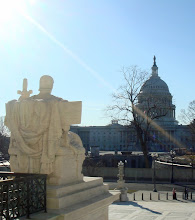Week 9: The School Board
In his poem of 1634, “Comus: A Mask Presented at Ludlow Castle,” John Milton wrote, “Was I deceived, or did a sable cloud turn forth her silver lining on the night? I did not err; there does a sable cloud turn forth her silver lining on the night, and casts a gleam over this tufted grove.”
From Milton, we know today the maxim, “every cloud has a silver lining.”
At the national level, the cloud of extreme partisanship turns forth a silver lining in that it presents a seemingly clear choice between the two major parties’ candidates. People tend to love one candidate and despise the opponent. Interestingly, the policies of both major policies have resulted, over time, in greater intrusion into our lives, exponentially increasing government spending and national debt, and rancorous discord in political debate.
Where clarity becomes translucent at best or opaque at worst is in local elections. I found this to be the case as I reviewed the draft ballot for the upcoming election in my voting district. In researching each candidate for every race, particularly for the county commission and for the local school board, I found a dearth of information about real policy positions, positions that could dictate what a local business can sell (e.g., whether or not a brewery can sell beer if they don’t also sell food), and what and how the children of our community learn (e.g., the lessons of Columbus Day versus Indigenous Peoples Day).
At least for me, the sable cloud has descended upon and has enveloped me, even in spite of my efforts to learn about these local candidates.
Let us consider the local school board, an often overlooked yet critically important organ of the government. It is a board that interprets national policy and, to a certain extent, sets local policy on the education of future generations. Is there any function of local government with greater consequence than this? And what do we know of our candidates? Practically nothing.
With regard to each and every socio-political ill we face today, the only cure I have heretofore been able to envisage is meaningful education that endeavors to teach not what to think but how to think. This requires effective and transparent education policy and practice, which, in turn, requires a sound and measured guidance of a school board. The antithesis to this cure is an activist school board, which pushes what to think as opposed to fostering learned inquiry. It is, kind reader, my opinion that such activism leads to tyranny.
In “The Gulag Archipelago,” Aleksandr Solzhenitsyn exposed the horrors of the Soviet penal system and its collection of prisons and concentration camps. Of particular note in volume one of the three-volume work was the easy purging of anyone in the working class who opposed (and in many cases even those who didn’t oppose) soviet tyranny during the rule of Lenin, Stalin and their successors. He wrote, “But peasants are a silent people, without a literary voice, nor do they write complaints or memoirs.” This was the rationale for 15 million peasants voluntarily, hopelessly and helplessly, showing up to summons by village officials, who summarily sent them off to forced labor camps and to firing squads.
Without doubt, America’s average citizen is clearly better off than the serf or peasant of tsarist and early soviet Russia. After all, de Tocqueville recognized in “Democracy in America,” that, “You cannot doubt that in the United States the instruction of the people serves powerfully to maintain the democratic republic. It will be so, I think, everywhere that the instruction that enlightens the mind is not separated from the education that regulates mores.”
Nevertheless, the restriction and deprivation of information and knowledge is a key requisite for suppression and servitude. I feel like a victim of that deprivation as I try to understand my local candidates and their positions. Were it not for the sample ballot listing party affiliation, I would encounter great difficulty even knowing who was a Democrat, Libertarian or Republican.
Where this lack of information presents a real danger is in the very example we have been considering – the local school board. Parent or not, we are all stakeholders in the edification of today’s youth…tomorrow’s leaders. I, for one, would like to know I’m electing a school board member who will promote critical thinking as opposed to socio-political indoctrination in our taxpayer-funded schools.
Indoctrination leads to one future and one future only: totalitarianism.
To that point, I have a precisely two weeks to hit the newspapers and internet to discover what else might be out there about my local candidates. I hope, kind reader, you will do the same.

No comments:
Post a Comment